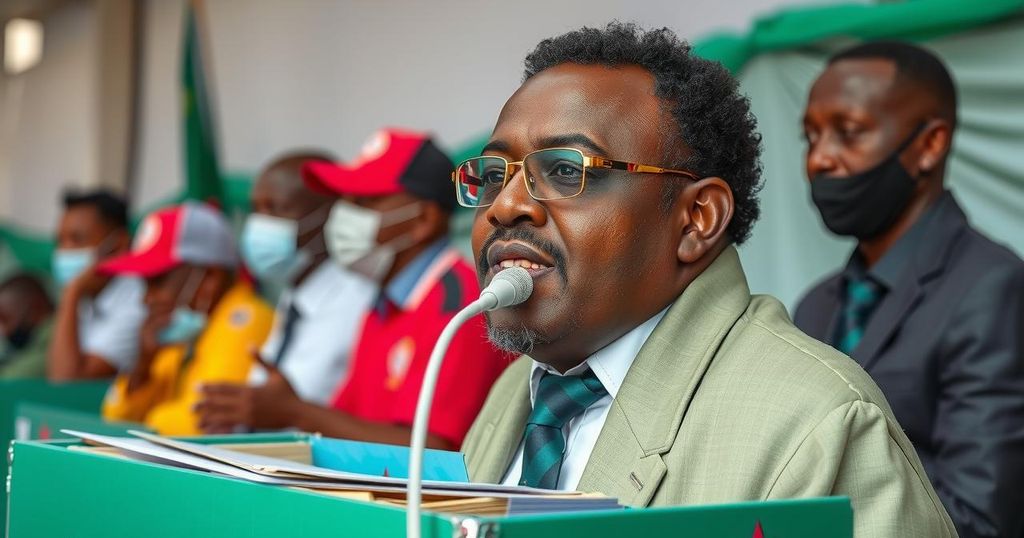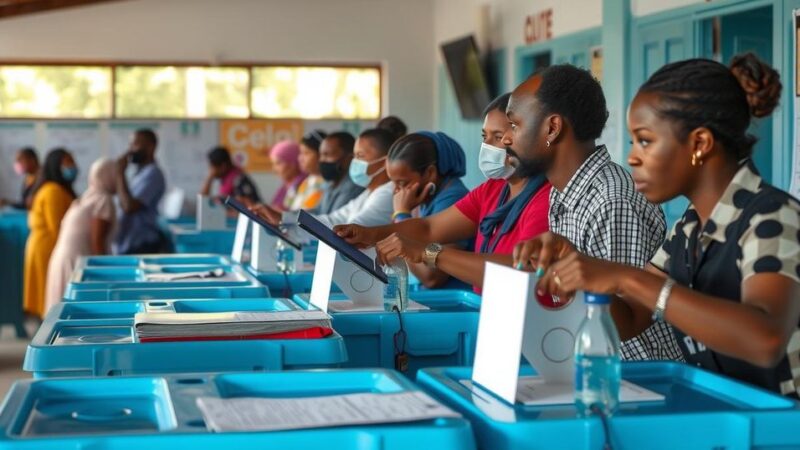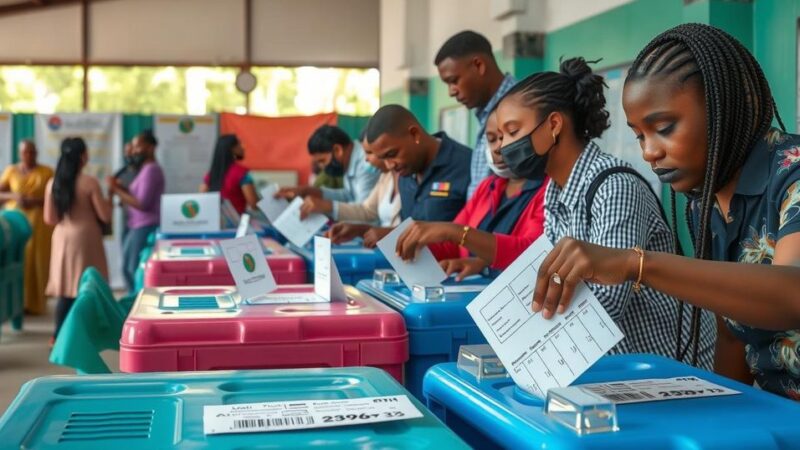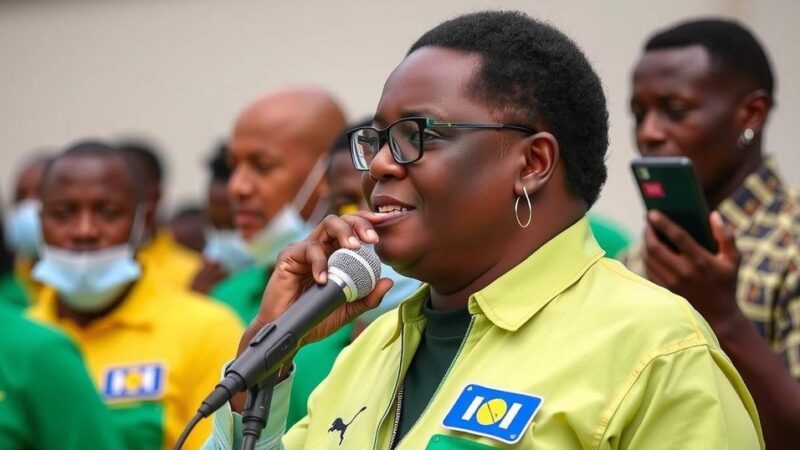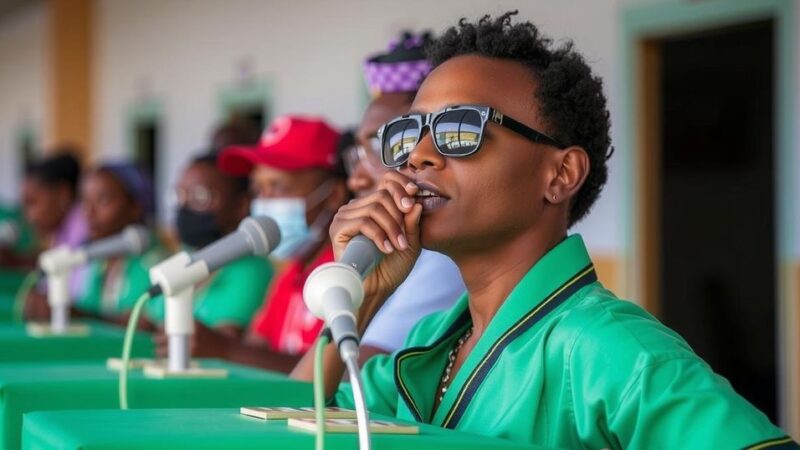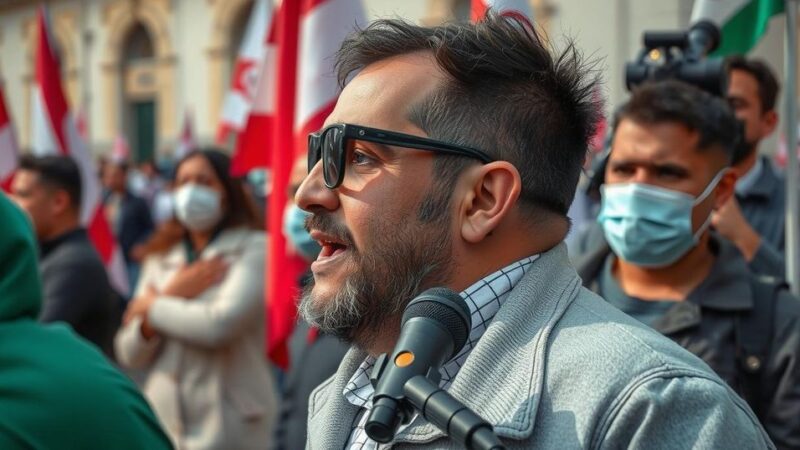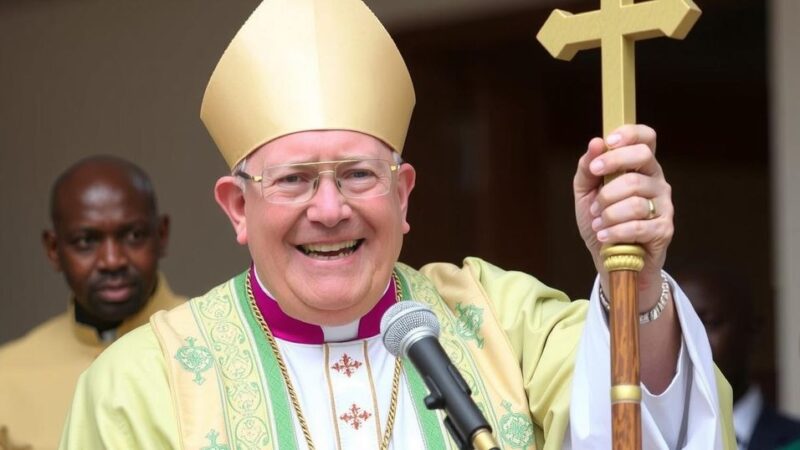Comoros held legislative elections on Sunday amid opposition boycotts due to transparency concerns, with a significant logistical failure reported in polling stations. President Azali Assoumani’s son, Nour El Fath Azali, is a key candidate. The elections and their implications for governance amidst allegations of authoritarianism continue to create tension in the nation.
The Comoros islands, situated in the Indian Ocean, held legislative elections on a Sunday characterized by widespread opposition boycotting the process, citing a lack of transparency. The son of President Azali Assoumani, Nour El Fath Azali, is contesting to represent a constituency near the capital, Moroni. The elections were marred by logistical failures, with numerous polling stations opening late due to delays in election materials. An on-the-ground observation revealed improvised voting setups that compromised voter privacy, such as a booth with just a box on a chair.
Nour El Fath Azali had been promoted to a secretary general position in July 2024, following his advisory role to President Assoumani, notorious for his authoritarian leadership style. Critics argue that Nour’s significant powers render him a de facto prime minister. Azali’s January 2024 re-election was controversial, heavily contested, and resulted in violent protests; accusations of electoral fraud persisted, with opposition candidates opting to participate this time to prevent a repeat of the near-empty legislature observed after the 2020 boycott.
Voting will continue as parliament has thirty-three members elected directly from approximately 340,000 registered voters, with a runoff scheduled for February 16. The ruling Convention for the Renewal of the Comoros party is poised to retain control, as in multiple districts their candidates face no opposition. Following the contested elections in January, which saw a voting claim of 57 percent in favor of Azali, concerns remain regarding the democratic processes in Comoros, particularly after violent protests where one individual died and many were injured.
The Comoros, an archipelago nation in the Indian Ocean, has a tumultuous political history characterized by coups and allegations of electoral malpractice. Following President Azali Assoumani’s return to power in a contested 2024 election, the atmosphere surrounding the legislative elections was fraught with tension. The opposition’s decision to boycott previous elections left the ruling party with substantial dominance, raising questions of governance and transparency. The current voting process not only reflects ongoing dissatisfaction with the electoral framework but also highlights severe logistical and operational failures that further undermine the integrity of the elections.
In conclusion, the ongoing elections in the Comoros epitomize a challenging political landscape where allegations of authoritarianism, logistical failures, and public disillusionment with the transparency of democratic processes prevail. The presence of President Azali’s son as a key candidate and the ruling party’s anticipated dominance cast a shadow on the potential for genuine political competition. The unfolding events will likely influence future elections and the overall stability of governance in the nation.
Original Source: www.barrons.com

